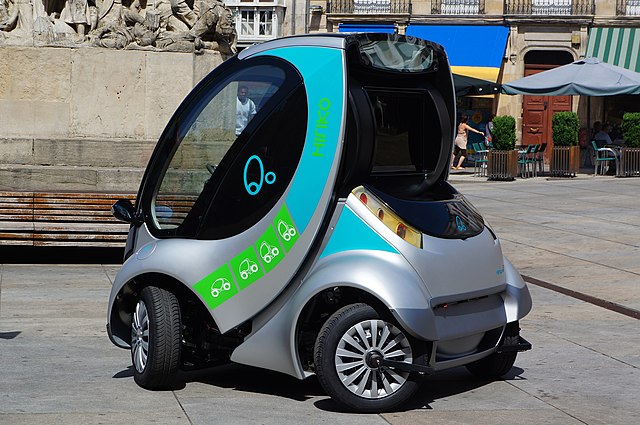A delivery robot is an autonomous robot that provides "last mile" delivery services. An operator may monitor and take control of the robot remotely in certain situations that the robot cannot resolve by itself such as when it is stuck in an obstacle. Delivery robots can be used in different settings such as food delivery, package delivery, hospital delivery, and room service.
Delivery robot from Starship Technologies on a sidewalk at Oregon State University
Daxbot delivering groceries
A Sidewalk robot made by Starship delivering food to students at Oregon State University
A hospital delivery robot in front of elevator doors stating "Robot Has Priority", a situation that may be regarded as reverse discrimination in relation to humans. Further information: Robot ethics
Last mile (transportation)
In supply chain management and transportation planning, the last mile or last kilometer is the last leg of a journey comprising the movement of passengers and goods from a transportation hub to a final destination. The concept of "last mile" was adopted from the telecommunications industry, which faced difficulty connecting individual homes to the main telecommunications network. Similarly, in supply chain management, last-mile describes the logistical challenges at the last phase of transportation getting people and packages from hubs to their final destinations.
Bicycle sharing systems such as Washington's Capital Bikeshare have been cited as a way to alleviate the "last mile problem".
The Hiriko folding two-seat urban electric car was intended to be deployed in Germany in 2013 to provide the last mile of the journey to Deutsche Bahn's railway customers to their final destinations.
A sidewalk robot made by Starship delivering food to students at Oregon State University






